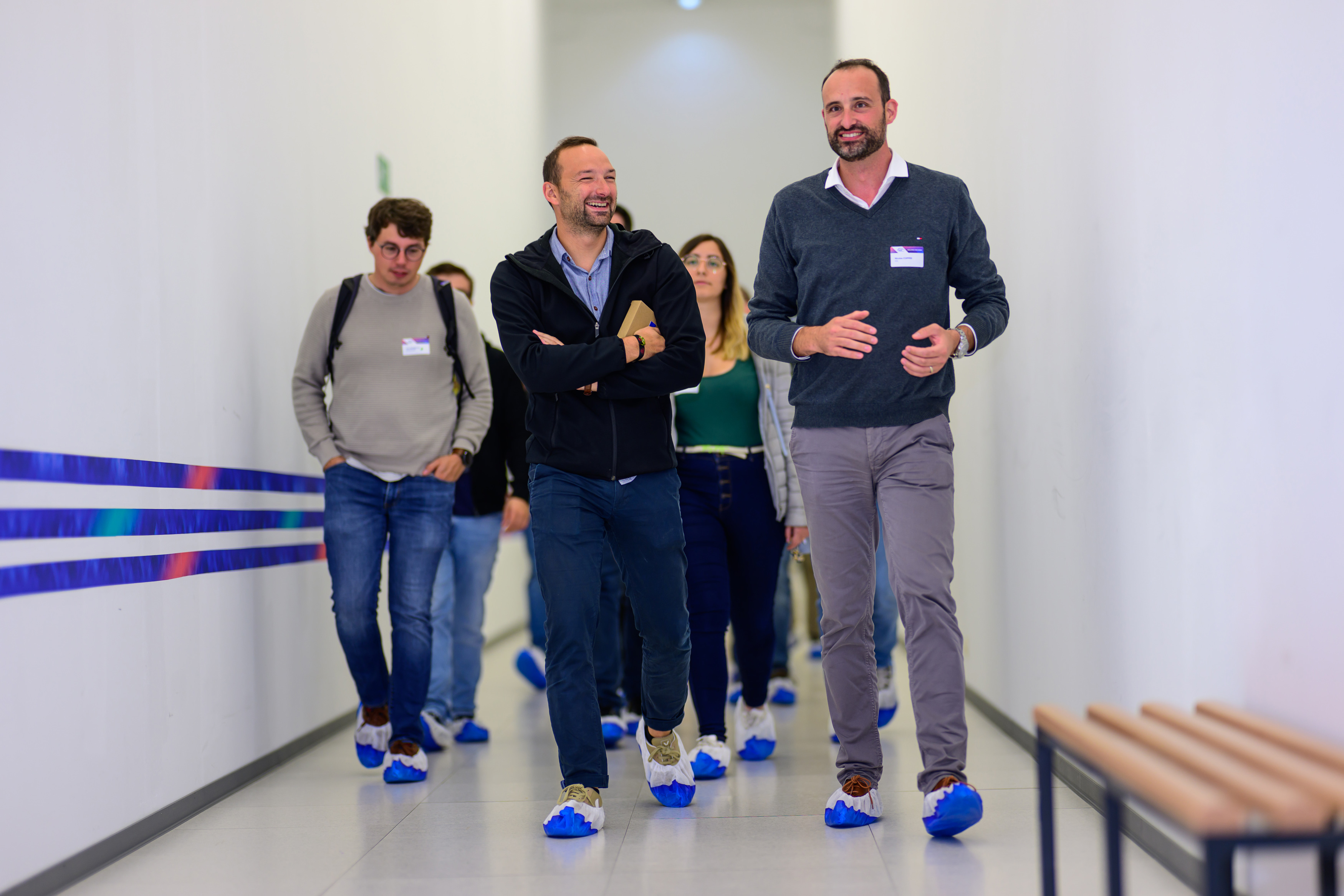After a decade in data center operations, Nicolas Coppée has stepped into a new role as CIO at LCL Data Centers. This marks an important step in his career and a strategic shift for LCL. What led to this transition? How does his operational experience shape his approach? And what challenges and opportunities lie ahead? We sat down with Nicolas to discuss his journey and vision.
Nicolas Coppée spent 10 years as data center manager of LCL Wallonia One. The move from data center manager to CIO was a completely functional shift. “LCL is growing, and with that growth comes increasing complexity in IT and operations,” Nicolas explains. “We needed to rethink our organisational structure and prepare for future growth.”
An essential step in this reorganization was to create a dedicated IT team that effectively supports the company’s operations and has a strong focus on cybersecurity. “Previously, IT and OT were managed within the same structure,” Nicolas explains. “Now, both function as distinct departments, allowing IT to focus on IT systems, cybersecurity, energy coordination, and business innovation, while our Operations team remains fully dedicated to infrastructure management and customer relationships.”
As part of his new role, Nicolas’ department now also oversees energy coordination, ensuring a structured approach to energy efficiency and sustainability. Last year, LCL achieved ISO 50001 certification for energy management at LCL Wallonia One, a milestone in its sustainability efforts. “The goal now is to extend this certification across all our data centers,” he says. “By integrating energy management into a support department, we want to optimise our energy consumption and improve energy efficiency at every site.”
LCL has strengthened its commitment to renewable energy by installing three wind turbines and expanding its solar panel capacity, including installations on building façades. “We generate as much green energy as possible,” Nicolas explains. “But when there’s no sun or wind, we still rely on the grid. That’s why smart energy management is key.” With energy pricing becoming more dynamic, real-time adjustments could soon replace fixed tariffs. “Hourly price shifts are already happening, and in the future, this could change every 15 minutes,” he adds. “We need to prepare for these changes and stay ahead.”
Another pillar of Nicolas’s department is business projects, with the LCL Service Hub as a key example. The customer portal streamlines our customers’ operations by offering faster processing of access requests, clear visibility into their cable book, and an efficient way to request hands-and-eyes support. In the future, it will also provide our customers with real-time insights into their energy consumption and carbon footprint, motivating them to be part of LCL’s sustainability story.

Nicolas brings a unique combination of IT expertise and operational experience, having spent years operating the data center. This background allows him to make IT decisions that are both strategic and practical. For Nicolas, staying ahead means understanding how every part of a process is connected. “An issue is rarely caused by a single factor; it’s usually a chain of events. With my experience in the field, I know which links in that chain need to be reinforced to prevent problems before they arise,” he explains.
As CIO, he wants to apply the same structured approach he knows from when he was a data center manager. “At LCL, we manage our facilities meticulously because that is our core business,” Nicolas reflects. “Now, I want to apply that same discipline to IT. Take a cooling chiller, for example. It is regularly inspected, validated, and maintained to ensure optimal performance. Our IT systems should follow the same rigorous approach, with strict controls, checklists and validations.”
Cybersecurity is becoming increasingly important for LCL and the industry. To strengthen its security strategy, LCL is introducing a dedicated cybersecurity role in the new organisational structure and actively preparing for NIS2 and DORA (Digital Operational Resilience Act). Nicolas expects the ongoing analyses to confirm our goal that cybersecurity must be a top priority, which is why this new role has been created.
AI is another trend that will only become more important, bringing both opportunities and challenges. It can support the dedicated cyber security role in network monitoring and detecting anomalies, but human expertise remains essential. At the same time, AI is also making phishing attacks more sophisticated. “That means we need to train our employees to recognise these evolving threats and stay vigilant”, he adds.
“A company’s reputation takes years to build, but just minutes to destroy,” Nicolas adds. “That is why we are taking a proactive approach. Security is no longer just an IT concern; it is a company-wide responsibility.”
What excites Nicolas most about his new position? “Ha! That’s a good question. Building something new,” he says. “We are shaping a structure that will support LCL’s future growth and strengthen our position as an industry leader. In IT, everything is moving fast, and AI is changing the game every day. That’s a challenge I’m ready to take on.”